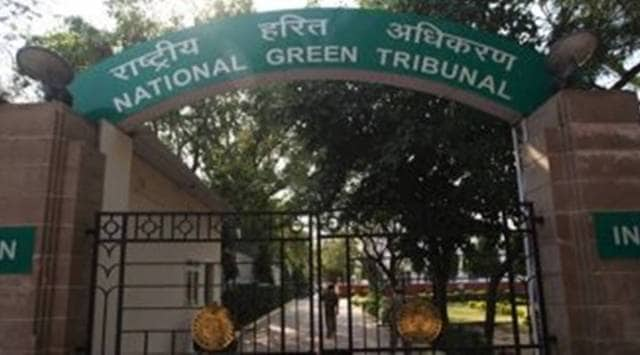In 2020, the National Green Tribunal (NGT) dismissed a total of 22 appeals, mostly by local residents against green clearances issued to 20 projects. As many as 11, half of these dismissals, an analysis by The Indian Express of the orders shows, were on the technical ground that appellants did not approach the Tribunal in time.
Under the NGT Act, 2010, a clearance can be challenged by an affected party within 30 days while the Tribunal has the authority to condone another 60 days’ delay given “sufficient cause”. This time limit applies from the day of communication as both regulators and developers are legally required to place every project clearance in the public domain.

The NGT’s move raises questions of due process for two key reasons:
One, of the 11 dismissals because of delay, as many as five were filed within 44 to 90 days, well within the outer limit.
ExplainedRaises question of due process
Tribunal can’t wait indefinitely but six of the 11 appeals were filed between 44-90 days, under the outer time limit. Most were by residents in rural areas who said they needed time for paperwork. The number for 2020 was highest share in four years.
One was filed on Day 91 and another four were filed within two months beyond the 90-day limit.
Ironically, the NGT itself, in its orders, acknowledged that the “provision relating to condonation of delay should be construed liberally and ought not to be approached in a pedantic manner.” It also added that “no hard and fast rule can be laid down in this regard and the basic guiding factor is advancement of substantial justice.”
At the same time, though, the tribunal’s dismissal orders held the appellants “lethargic” or “careless” and their grounds for seeking condonation of delay “sketchy and superficial” or “vague and nebulous”.
Story continues below this ad
The tribunal also disregarded pleas that certain stakeholders, such as agriculturists, might lack the wherewithal to monitor routinely various government portals for information on such clearances.
Two, the number of appeals dismissed last year on the ground of delays is the highest ever as a share of all appeals, 40 per cent — almost twice the share between 2017 and 2019.
The 11 appeals dismissed include those related to clearances given to sand mining in Ganga (Uttarakhand); Bhogapuram greenfield airport (Andhra Pradesh); a thermal power plant (Telangana); and coal and limestone mines (Chhattisgarh, Maharashtra, and Gujarat).
 One, of the 11 dismissals because of delay, as many as five were filed within 44 to 90 days, well within the outer limit.
One, of the 11 dismissals because of delay, as many as five were filed within 44 to 90 days, well within the outer limit.
Significantly, in November, the SC issued notices in at least two appeals that were dismissed because of delay: the Penganga coal mine in Maharashtra’s Chandrapur district and the airport in Andhra Pradesh.
Story continues below this ad
“Projects cannot be implemented if their clearances are open to scrutiny indefinitely. But concerns of the project-affected must also be addressed. Over the years, the tribunal has been sensitive to both aspects. There should be no deviation from that approach because the law seeks a balance,” said a former expert member of the tribunal.
“The tribunal’s test of independence and expertise is in its function as the appellate authority. It is surprising if the NGT shies away from hearing appeals on merit even when they are filed within 90 days. Not even 1% of projects are appealed against and the appellants, often project-affected people from the hinterlands, deserve to be heard within the limits of reasonability,” said Ritwick Dutta, environmental lawyer and founder of Delhi-based Legal Initiative for Forest and Environment.
Consider the appeals dismissed in 2020 with reason for delay and the NGT’s response:
Expansion of Kusmunda opencast coal mine in Chhattisgarh’s Korba
Appeal filed: Day 90
Appellant’s plea: Came to know of the environmental clearance (EC) “at a very belated stage and there was delay in consulting the advocate.”
NGT: “The grounds and explanations submitted totally sketchy and superficial…for condonation of delay, day to day explanation is required to be submitted by the appellant.”
Story continues below this ad
Expansion of Penganga opencast coal mine in Maharashtra’s Chandrapur
Appeal filed: Day 90
Appellant’s plea: Delay in obtaining a copy of the EC, travel to Delhi, lawyer delay
NGT: “…the grounds vague and nebulous… reflects the lethargic manner (of) the Appellant.”
Expansion of limestone mining in Gujarat’s Gir-Somnath district.
Appeal filed: Day 87
Appellant’s plea: Delay because of voluminous documents, travel from Gujarat to Pune; lawyers seeking technical help from experts.
NGT: “…the Appellant had been lethargic in his efforts to file the Appeal.”
Stone quarries in Kerala
Appeal filed: Day 55
Appellant’s plea: Came to know about EC on its receipt under RTI.
NGT ruled: “…no satisfactory reason stated.”
Municipal Solid Waste Management Facility in Bangalore Rural district
Appeal filed: Day 44
Appellant’s plea: Had to obtain documents under RTI Act before seeking expert opinion.
NGT ruled: “Very difficult to believe” that he came to know about the EC from the RTI reply which “has been stated only for the purpose of saving the limitation and nothing more.”
Story continues below this ad
Greenfield airport at Bhogapuram, Andhra Pradesh
Appeal filed: Day 91
Appellant’s plea: Filed within 90 days technically since the EC was published in the local newspapers after a week’s delay.
NGT ruled: The EC was uploaded on the ministry’s website the day it was granted. “The Tribunal has no power to condone the delay” beyond 90 days.
Sandmining in Ganga in Uttarakhand’s Haridwar
Appeal filed: Day 142
Appellant’s plea: Filed two appeals against original EC…invoked Section 14 of the Limitation Act which holds that the time spent in another civil proceeding against the same party for the same relief be excluded in computing time bar.
NGT ruled: “Appellant… has not been able to satisfy the Tribunal that he was prevented by sufficient cause…”
4×270 MW thermal power plant in Telengana’s Bhadradri district
Appeal filed: Day 138
Appellant’s plea: Tribunal closed for summer vacation by the time the appellant collected documents… appeal filed on reopening day, returned twice for defects.
NGT ruled: “The reasons are not sufficient.”
Ashti Lift Irrigation Scheme III in Maharashtra’s Beed district
Appeal filed: Day 129
Appellant’s plea: Limitation should be interpreted to entertain application, not to reject it.
NGT ruled: “Legislative command must take precedence over equitable principle…”
Story continues below this ad
Sand mining in Umaria district, Madhya Pradesh
Appeal filed: Day 145
Appellant’s plea: Investigated and obtained documents under RTI Act
NGT ruled: “We are not satisfied with the explanation.”
The other dismissed appeal against an Organic Waste Management Plant in Maharashtra’s Pune district was late by almost four years.
In 2010, the NGT had replaced the National Environmental Appellate Authority (NEAA) which came under severe criticism for failing to fulfil its purpose. The Delhi High Court had observed in a 2009 order: “…most of the appeals disposed of thus far (by NEAA) have in fact been dismissed, comprised as it is of retired bureaucrats…The NEAA is, therefore, at present neither an effective nor an independent mechanism for redressing the grievances of the public.”



 One, of the 11 dismissals because of delay, as many as five were filed within 44 to 90 days, well within the outer limit.
One, of the 11 dismissals because of delay, as many as five were filed within 44 to 90 days, well within the outer limit.





